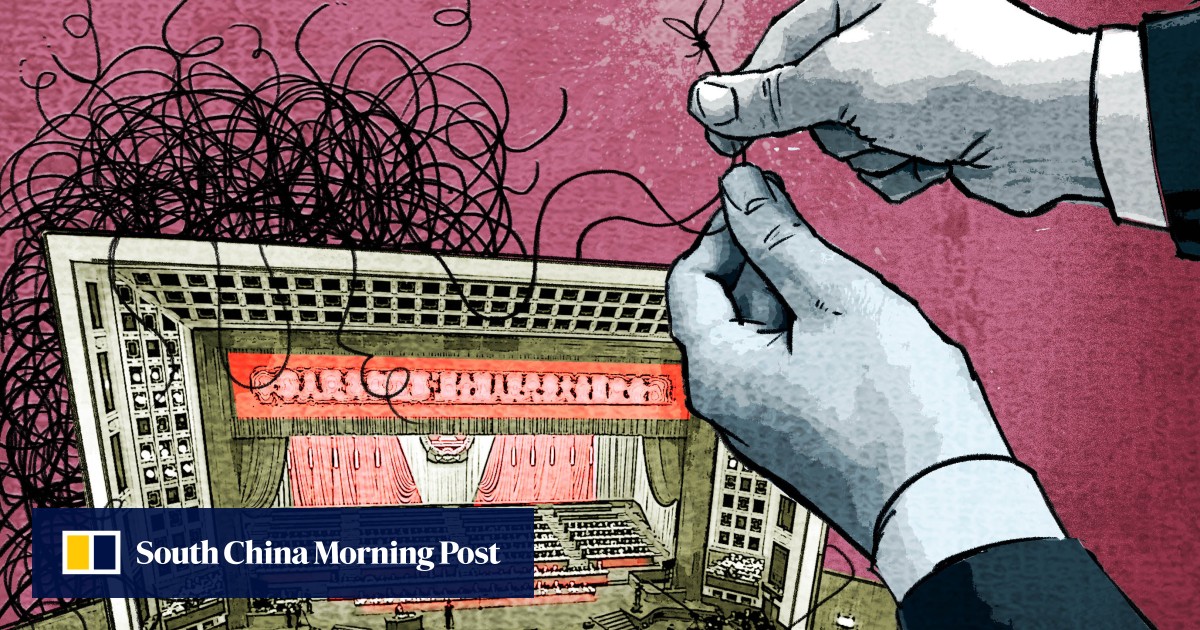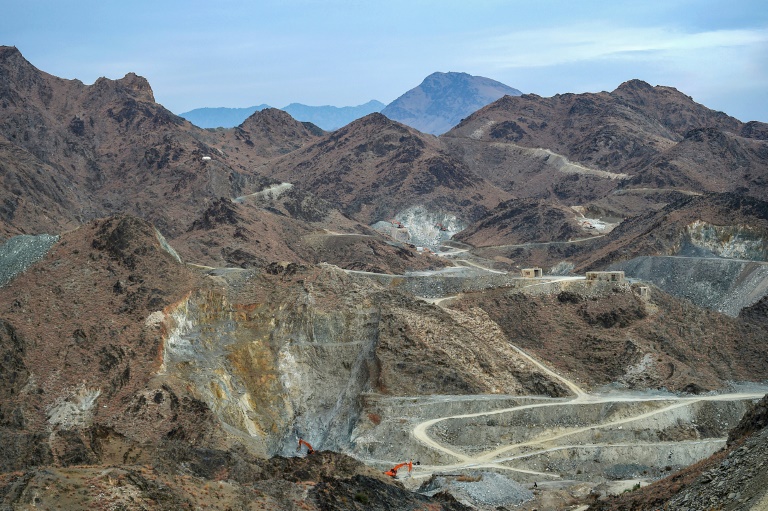Beijing has given no further explanation for the removal of the officials, leaving the status of some subsequent replacements in limbo. The information void has fuelled a narrative about China’s political uncertainties, against the backdrop of low confidence in the economy among international business leaders and the country’s private sector.
But experts say this year’s “two sessions”, or lianghui – an event designed to signal national unity and project confidence in the year ahead – offers a unique opportunity for Xi to tidy up political loose ends, and help boost both domestic and international messaging.
During the event, the lawmakers will adopt Premier Li Qiang’s first government work report, approve military and other key annual budgets, and possibly endorse personnel decisions.
The event also comes after the party repeatedly delayed a key conclave, known as the third plenum, during which the midterm strategy on the economy and governance is usually discussed.
Deng Yuwen, former deputy editor of Study Times, the official newspaper of the Central Party School, said the delay of the plenum meant that this year’s two sessions would be the first major occasion for the leadership to present their plans to the nation and the world on how they planned to tackle China’s stagnant growth and handle external challenges, while giving political signals on the progress of the ongoing purge and reshuffle.
“People are looking for different things. Political observers will certainly want to know if Beijing’s purge is coming to an end, especially in its military and diplomatic corps. Interactions among the top leaders will also be watched closely for the outside world to gauge their unity,” Deng said.
“Foreign investors will be looking for signs that Beijing has returned to a pro-development mode, including China’s GDP target and development strategies.
“China’s neighbours will want to know its military budget growth targets; and the Chinese people will be more interested in the government’s plan to create jobs and the direction of China’s stock market and property markets.”
Why China may have to ‘push harder’ to maintain its economic growth in 2024
Why China may have to ‘push harder’ to maintain its economic growth in 2024
The third plenary session of the Central Committee is usually held in the autumn of the year following the twice-a-decade national party congress, which was last held in 2022.
Since former paramount leader Deng Xiaoping famously used the plenum to announce China’s economic reform and opening-up policy in 1978, it has traditionally been the stage for deciding on the country’s development path.
However, the party’s leadership has not signalled when the conclave will be held this time, marking a first time since 1984 that the event was not held in the year following the party congress.
Observers say that part of the reason for the delay may be President Xi Jinping’s pending decision on the ongoing purges.
Gabriel Wildau, who focuses on political risk analysis in China as managing director at international advisory firm Teneo, said the purges of Qin Gang as foreign minister, Li Shangfu as defence minister, and multiple senior officers from the People’s Liberation Army (PLA) had left vacancies in the Central Committee.
Chinese officials in flurry of visits to PLA command to support war plans
Chinese officials in flurry of visits to PLA command to support war plans
The rare reshuffle in top diplomatic and military positions so soon after their appointments suggested serious wrongdoing – but Beijing did not explain the removals.
That intended vagueness – an obvious sign that Beijing has sought to buy time for what could be seen as major embarrassments – may not bode well in a plenum, when the leadership usually discloses progress on investigations into senior leaders.
A political researcher at Peking University who did not wish to be identified said the purges were likely to entail soul-searching in Beijing on the vetting processes for top cadres, often cited by the party as proof of the strength of its political system.
Xi is heavily involved in the vetting process, according to state news agency Xinhua, which said he has personally reviewed the list of all Central Committee members since the 19th party congress in 2017.
The reports also said Xi was briefed “many times” in the lead-up to both the 19th and the 20th party congresses to make sure the most “capable, loyal and clean cadres” were picked.
Leading scientist crucial to China’s space efforts to be expelled from top body
Leading scientist crucial to China’s space efforts to be expelled from top body
“But it seems that even with his personal attention, the process is not 100 per cent [corruption-proof]. He will definitely order the team in charge to reflect on what went wrong and find ways to … make it impeccable,” the researcher said.
Neil Thomas, a fellow for Chinese politics at the Asia Society Policy Institute’s Centre for China Analysis, said that because Li Shangfu and Qin Gang were both state councillors, the expectation was that their replacements would also hold this higher-ranked position.
“If the new defence minister or foreign minister does not also become a state councillor, it will make them less powerful officials and suggest that Xi does not fully trust them,” he said. “But the rising unpredictability of personnel movements in Xi’s third term makes it difficult to know whether this change will occur at the two sessions.”
The Peking University political researcher said the appointment of a new foreign minister and promotion of a new foreign and defence minister to state councillor was “a good starting point because it would send a clear political signal that these new leaders have the party’s top leader’s trust and endorsement”.
He added that a complete end to this round of purges in China’s diplomatic and defence corps could only come after the Central Committee’s meeting, because the final decisions on removal of their Central Committee membership and verdicts on the alleged disciplinary problems of the senior officials needed to be formally endorsed by the party’s top decision-making body.
But experts have also speculated about another reason for the delay of the plenum – that Beijing assessed that the causes of China’s economic difficulties are complex and require a nuanced approach – meaning the leadership needs more time to examine the facts and come up with a viable strategy.
Stock market turmoil might also have added to Xi’s concerns over the fragility of the Chinese financial system, especially as high US interest rates and prospects of continued US-China rivalry trigger continued capital outflows.
Li Qiang’s government work report is unlikely to announce bold new directions in China’s economic policy, according to Thomas of the Asia Society.
“It is likely to announce a similar growth target to last year’s mark of about 5 per cent and will probably focus on elaborating the agenda decided by the Communist Party at the central economic work conference last December,” he added.
“But in absence of economic reform, this goal will require more stimulus, which means either a higher deficit-to-GDP target or more off-budget fiscal injections.”
Teneo’s Wildau said the plenum’s delay pointed to the “unprecedentedly complex and difficult foreign and domestic challenges” for the economy.
“Xi and other top leaders still aim to produce a decision that offers credible policy responses. The time needed to develop these responses may explain the plenum delay,” he said.







